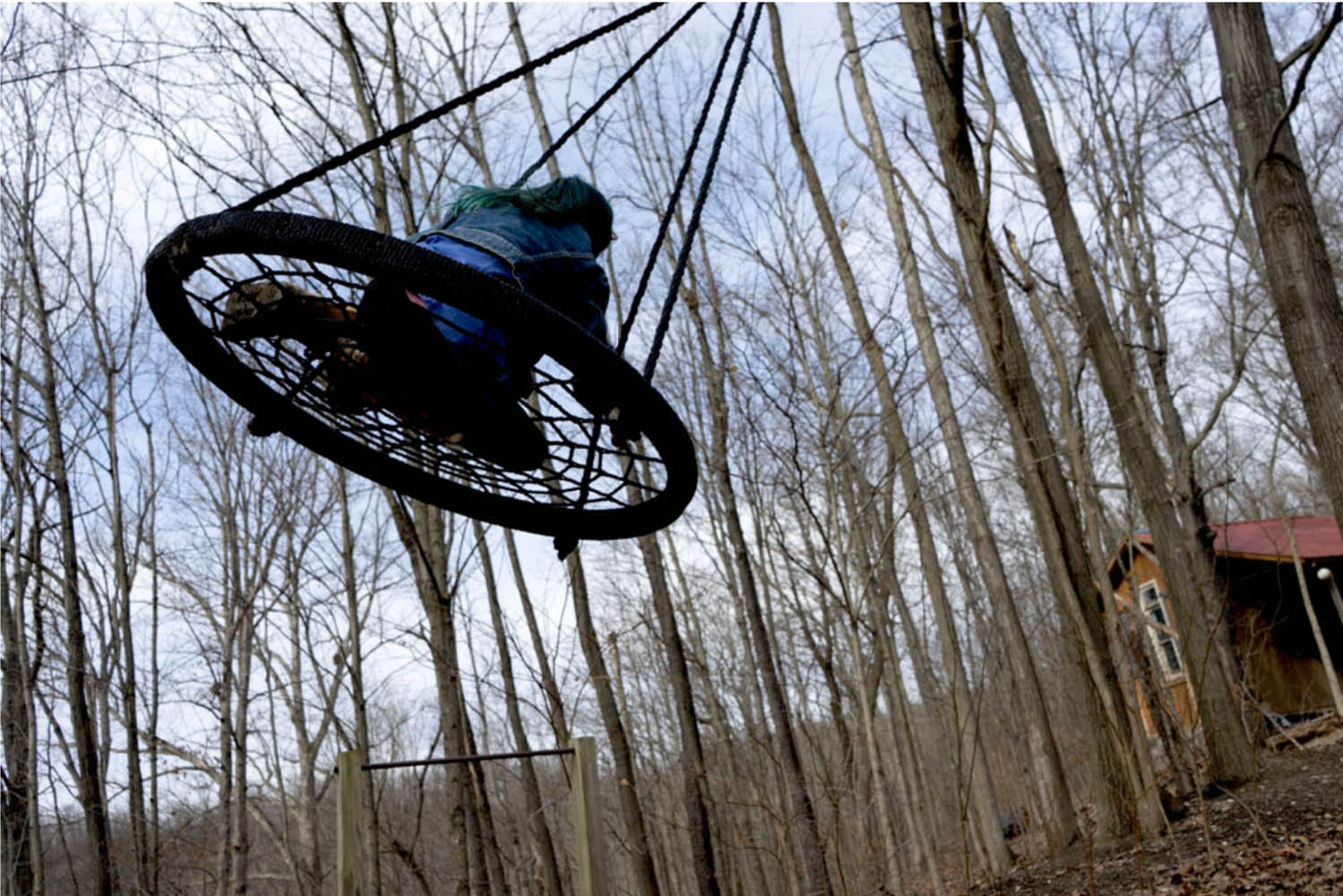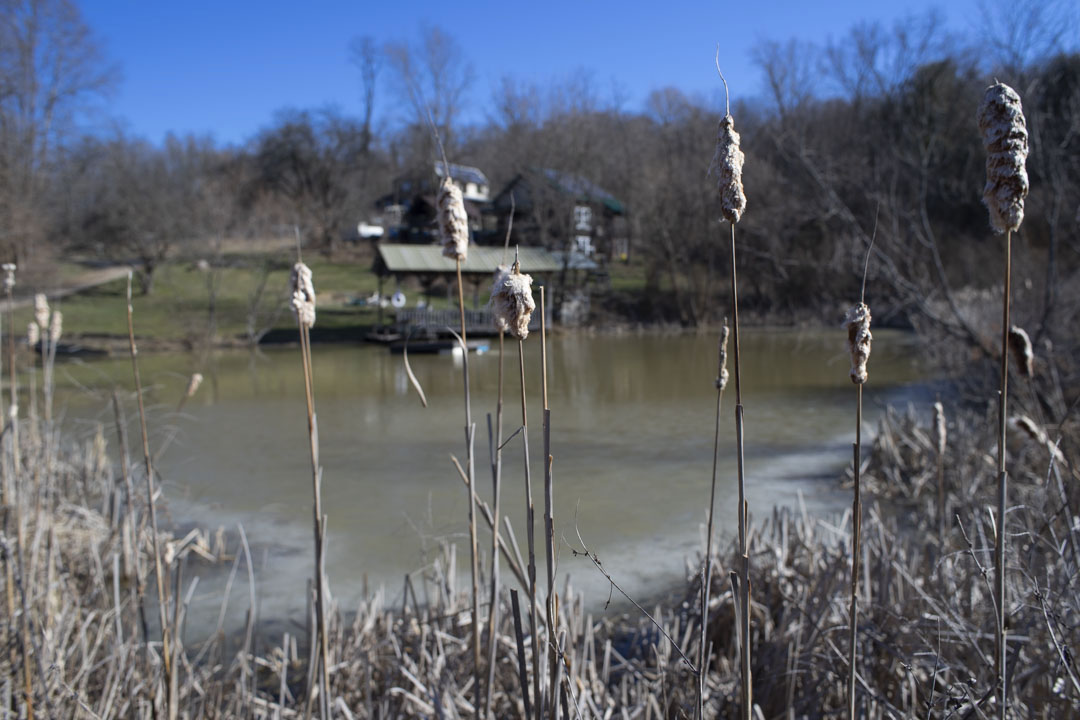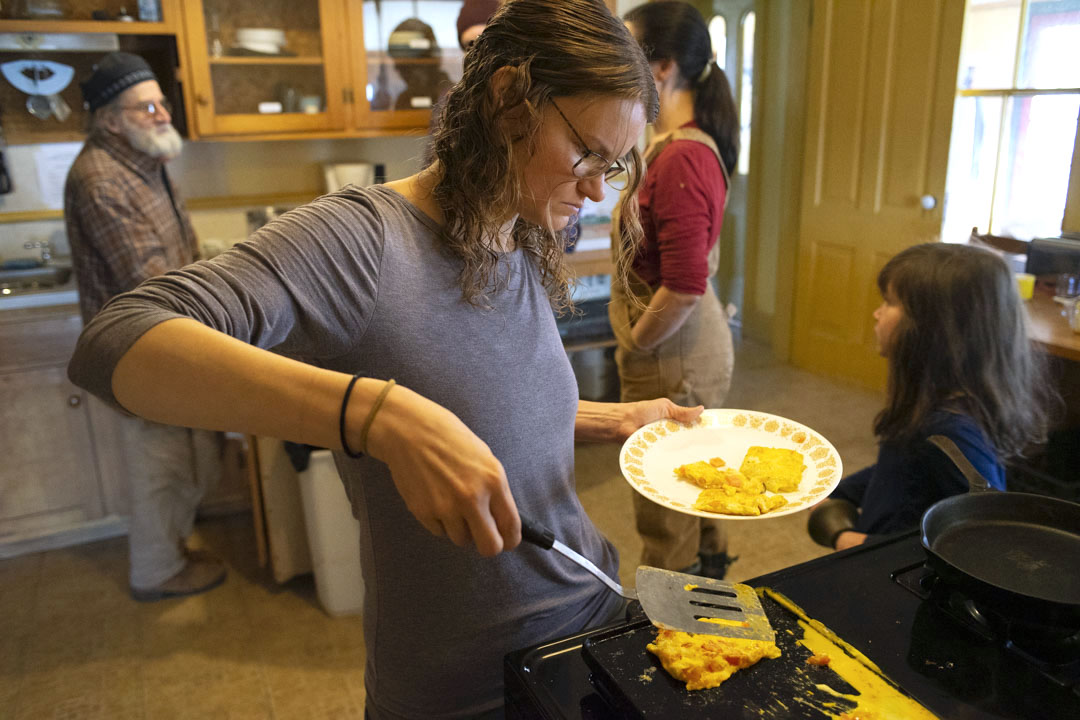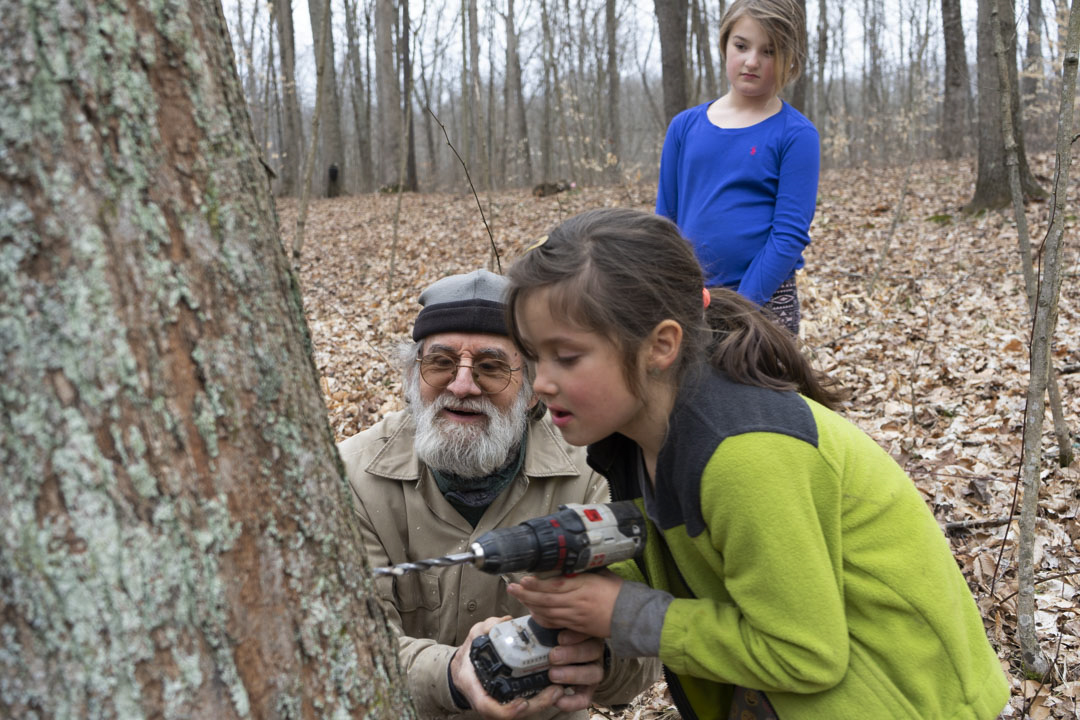

Laura and Joe H., who are raising 4 children at Currents, hope that the sweet beginnings of this beautiful rural place will help the children develop skills and resilence. Photograph: Molly Roberts
Currents sprouted from a discussion group comprised of members of a consumer co-op movement in Columbus, Ohio, in 1971. Ten years later, Roger Wilkens, Marty Zinn, Pete Hill, Eddie Kruse and Bob Henninge acquired 163 acres of rolling farmland in Glouster, Ohio, and the dream to build a community focused on cooperativism took root.
Members immediately began renovating the old farmhouse on the land and building a community based on cooperation and social activism.

The original farmhouse at Currents, seen from across the pond, is the community meeting place for a weekly brunch. Photograph: Molly Roberts

Sophia and her friend find a bird's nest on a hike in the woods of Currents. Photograph: Molly Roberts
The group envisioned Currents as a rural community where they could create a life centered around their shared values of equality, fairness, appropriate land use, and independent energy sources. All members were social change activists and had many practical and theoretical skills to support one another at Currents, and in the larger community of Athens County, where Glouster is located. Over the years, members of Currents provided training to a dozen new worker cooperatives. They started and/or led a variety of social change organizations, such as Appalachian Center for Economic Networks, River Valley Community School, Buckeye Forest Council, and the Center for the Creation of Cooperation.
Listen to Roger Wilkens, one of the founders of Currents, describe how cooperativism keeps Currents running.

Erin F., who rents space at Currents, dishes up an omelet at the Sunday morning potluck. The brunch is a weekly tradition at Currents. Photograph: Molly Roberts
On any given Sunday, you’ll find some of the community, now with 28 members, gathered together for brunch in the original farmhouse, catching up with one another, enjoying a fire in the winter months and sharing homemade food. This tradition also gives them a chance to discuss pending business in a casual way. Conversations run the gamut from their kids’ schooling to their plans for the day to their longer-term goals down the road.

A bulletin board hanging in Currents' farmhouse. Photograph: Molly Roberts
The members of the community each own a share of the land, but no single person owns the house they live in. Currents is a non-profit organization, and the land is owned by that entity. The governing style of Currents is democratic and egalitarian according to Laura H., one of the steerers, or managers of the community. The steerer role rotates through the group twice a year.
Laura joined Currents in 2009, and her leadership is an example of the transition that the founders of Currents are making to include younger members into the decision making process.
Marty Zinn, one of the founders of Currents, said, “I don’t think you can give intentional community to other people. They can learn about it from us, but only they can make it happen. What we are saying is: here is a way for you to figure out what you might want it to be, and how you can make it that. It’s not an easy thing.”
Laura and her husband, Joe, are raising four children at Currents. Laura believes that living in a cooperative society is important. “I want my kids to have hope to overcome these huge difficulties we’re facing in the world, so the first part of their lives are filled with happiness and getting to know the land, loving the land, seeing how food is grown and learning real skills.”
Besides schoolwork, Laura’s children assist in caring for animals and plants. She takes them on frequent nature walks on the farmland and teaches them practical skills.
"I want my kids to have hope to overcome these huge difficulties we’re facing in the world."
- Laura

Bob Henninge (left), Linden (right), and Lily (above), drill a hole in a maple tree to set a tap to collect sap. Photograph: Molly Roberts
On a recent field trip to the maple grove, the kids collected buckets of raw sap to be boiled into maple syrup. The community was able to store a dozen or so jars of the sweet sap for use during the year.
Laura, Joe, and their children embody the community’s positive focus on intergenerational cooperation, which contributes to the hope for a healthy and long-lived home for everyone at Currents. Time will tell, but Currents is working on an intergenerational power shift and eyeing ambitious plans for the future of the community. As Eddie Kruse stated, “We weren’t just seeking to make a little paradise for ourselves; we were interested in empowering ourselves so that we could make a better world.”
Currents is an established intentional community, actively looking to transfer power from generation to generation. Next, explore SuBAMUH, an intentional communtiy that has come to an end, through the reflections of its last living member.
Explore SuBAMUH